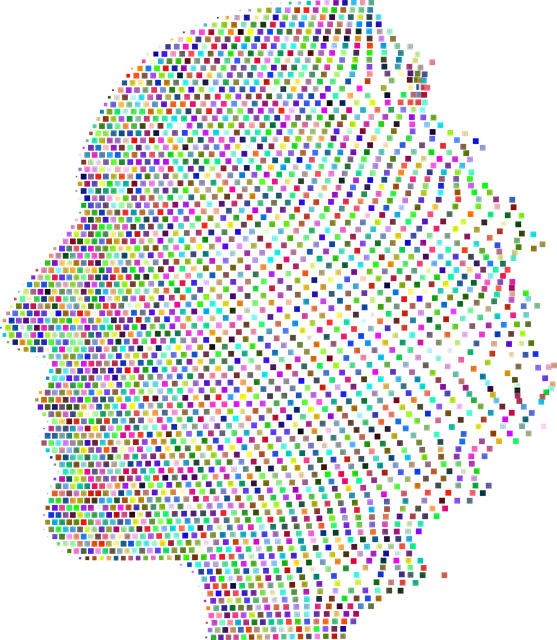Wheat Ridge Kaiser Permanente, a highly regarded mental health center, emphasizes the importance of advanced self-assessment tools for early detection and management of mental health concerns. They identified gaps in existing assessments due to their generic nature, leading to the proposal of personalized programs like Mental Wellness Coaching and Education, along with Crisis Intervention Guidance. The center's positive reviews highlight its dedicated team providing tailored care in a welcoming environment. Self-assessment tool development involves healthcare professionals, researchers, and community feedback for continuous improvement, ensuring cultural sensitivity and evidence-based practices like Mindfulness Meditation.
Mental wellness self-assessment tools play a crucial role in empowering individuals to take charge of their mental health. This article delves into the development of such tools, highlighting their significance and addressing current limitations based on insights from the Wheat Ridge Kaiser Permanente mental health center. We explore effective designing principles, implementation strategies, and continuous improvement approaches, drawing from real-world examples to enhance self-assessment accuracy and accessibility. Discover how these methods can revolutionize mental health support, informed by leading institutions like Wheat Ridge Kaiser Permanente.
- Understanding the Importance of Mental Wellness Self-Assessment
- Current Tools and Their Limitations: A Review from Wheat Ridge Kaiser Permanente
- Designing Effective Self-Assessment Tools for Mental Health
- Implementation, Feedback, and Continuous Improvement Strategies
Understanding the Importance of Mental Wellness Self-Assessment

Mental wellness self-assessment tools play a pivotal role in recognizing and addressing individual mental health concerns early on. At centers like Wheat Ridge Kaiser Permanente, which offers extensive mental health services, understanding the significance of self-assessment is paramount. These tools empower individuals to take an active role in their mental well-being by providing insights into their thoughts, feelings, and behaviors.
By integrating self-assessment practices, such as questionnaires or daily mood trackers, people can identify potential issues, track progress over time, and develop coping strategies. Moreover, this process fosters resilience—a crucial aspect of maintaining good mental health. In the context of a center like Wheat Ridge Kaiser Permanente, where mental health professionals utilize risk assessment techniques to gauge severity and guide treatment plans, self-assessments serve as valuable precursors, contributing to effective stigma reduction efforts and enabling personalized care.
Current Tools and Their Limitations: A Review from Wheat Ridge Kaiser Permanente

Wheat Ridge Kaiser Permanente, a renowned mental health center, has conducted an in-depth review of current self-assessment tools used for mental wellness. Their findings highlight several limitations in the existing market, especially when it comes to personalized and comprehensive evaluations. Many traditional assessments fail to capture the intricate dynamics of individual mental health journeys, often relying on generic questionnaires that may not accurately reflect diverse experiences.
This gap in effective assessment has prompted discussions about the development of innovative solutions. The center emphasizes the potential of integrating Mental Wellness Coaching Programs and designing tailored Mental Health Education Programs. By combining these approaches with Crisis Intervention Guidance, a more nuanced understanding of mental wellness can be achieved. Such developments aim to empower individuals with tools for self-reflection and growth, addressing the needs that current assessments often overlook.
Designing Effective Self-Assessment Tools for Mental Health

Implementation, Feedback, and Continuous Improvement Strategies

Implementing self-assessment tools for mental wellness is a collaborative process that involves various stakeholders, including healthcare professionals at Wheat Ridge Kaiser Permanente mental health center reviews, researchers, and community members. Once developed, these tools should be pilot-tested to gather initial feedback from potential users, ensuring they are user-friendly, culturally sensitive, and accurately assess mental health status. This feedback loop is vital for refining the tools and tailoring them to meet the diverse needs of individuals seeking Mental Health Awareness.
Continuous improvement strategies should be in place to incorporate user feedback and evolving research findings. Regular updates and revisions ensure that the self-assessment tools remain relevant, effective, and aligned with evidence-based practices such as Mindfulness Meditation for Self-Esteem Improvement. By adopting an iterative approach, these tools can evolve over time, enhancing their ability to support individuals in their mental wellness journeys.
Mental wellness self-assessment tools play a pivotal role in empowering individuals to take charge of their mental health. As highlighted by Wheat Ridge Kaiser Permanente mental health center reviews, current tools have limitations that hinder their effectiveness. To address these gaps, we must design user-friendly and comprehensive assessments that facilitate accurate self-reflection. By implementing strategic feedback loops and continuously refining these tools, we can create a more supportive environment for mental well-being, ultimately enhancing the quality of care provided by Wheat Ridge Kaiser Permanente and similar institutions.


